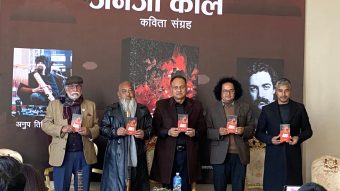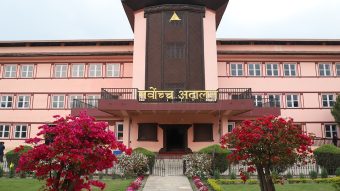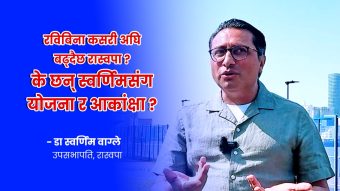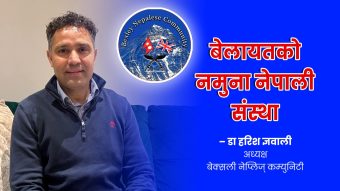SONEUK Explores the Future of Agentic AI through World Models and Digital Twins



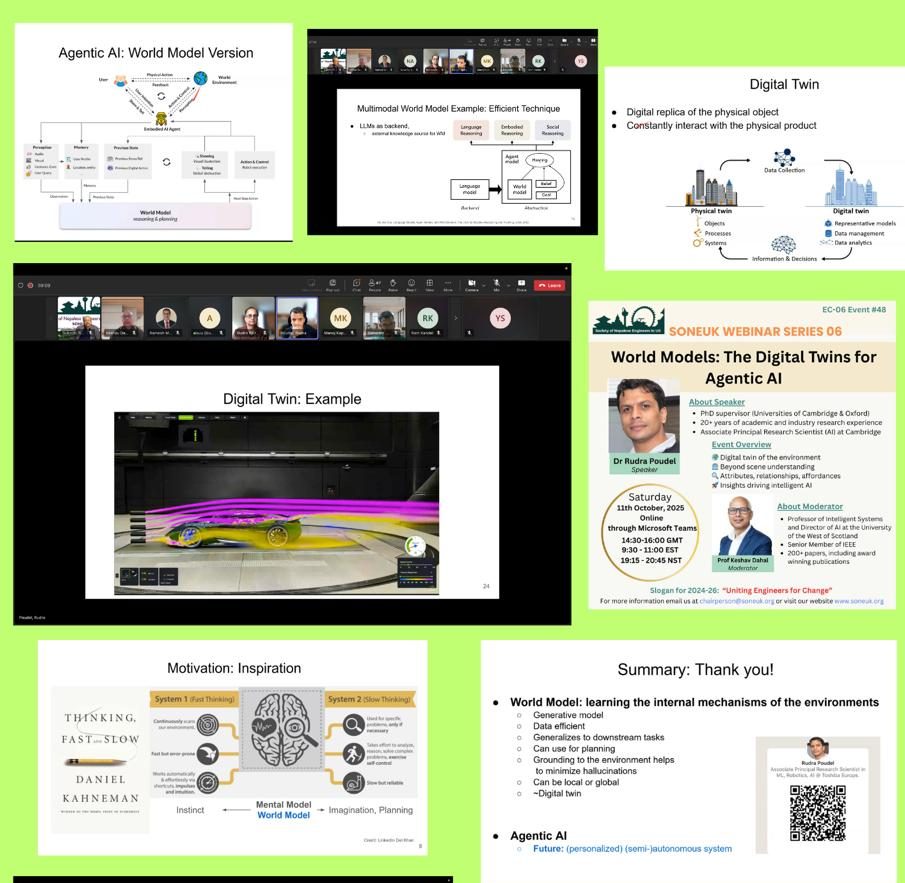
London: The Society of Nepalese Engineers in the UK (SONEUK) hosted its sixth Webinar titled ‘World Models: The Digital Twins for Agentic AI.’ The session was presented by Dr Rudra Poudel, Associate Principal Researcher in Artificial Intelligence and PhD supervisor at both the University of Cambridge and the University of Oxford.
The session was moderated by Professor Keshav Dahal, an expert in Intelligent Systems at the University of the West of Scotland.
The session commenced with SONEUK Chairperson Er Subodh Timilsina introducing the topic of world models. Prof Dahal and Dr Poudel gave brief introductions, sharing their academic and professional interests in AI, and encouraged participants to contact them directly for further discussion.
Dr Poudel defined world models and demonstrated their connection to real-world applications, including the use of AI tools such as ChatGPT. He also highlighted the importance of language reasoning in world modelling and presented an example of multimodal world model.
In the second part of his talk, Dr Poudel delved into the concept of digital twins, clarifying the differences between static and dynamic models. He also touched on costs, healthcare, and planning of processes.
The final segment focused on Agentic AI and ethical considerations. Dr Poudel concluded with a summary of key insights.
Following the presentation, Prof Dahal led an interactive Q&A session, where participants discussed topics such as AI alignment, ethical implications, technical design, systematic thinking, methodological integration in AI and digital twin technologies.
One participant raised concerns about the potential risks of AI producing arbitrary outputs, sparking a lively exchange on ways to improve AI reliability. The discussion centred on potential approaches to enhancing AI reliability, including the use of reasoning mechanisms, the implementation of Reinforcement Learning Verification Rewards (RLVR), and the application of supervised learning techniques. These ideas reflect a growing interest in developing AI models that are not only intelligent but also trustworthy, transparent, and aligned with human reasoning.
The webinar concluded with closing remarks from Chairperson Er Subodh Timilsina, who expressed his appreciation to the speaker, moderator, and attendees. Participants represented a diverse range of fields, including public health, engineering, and the civil service. With 50 attendees, SONEUK celebrated another successful event and expressed optimism for even greater engagement in future webinars.
सम्बन्धित सामग्रीहरू
हाम्रो सिफारिस
- १
- २
- ३
- ४
- ५






